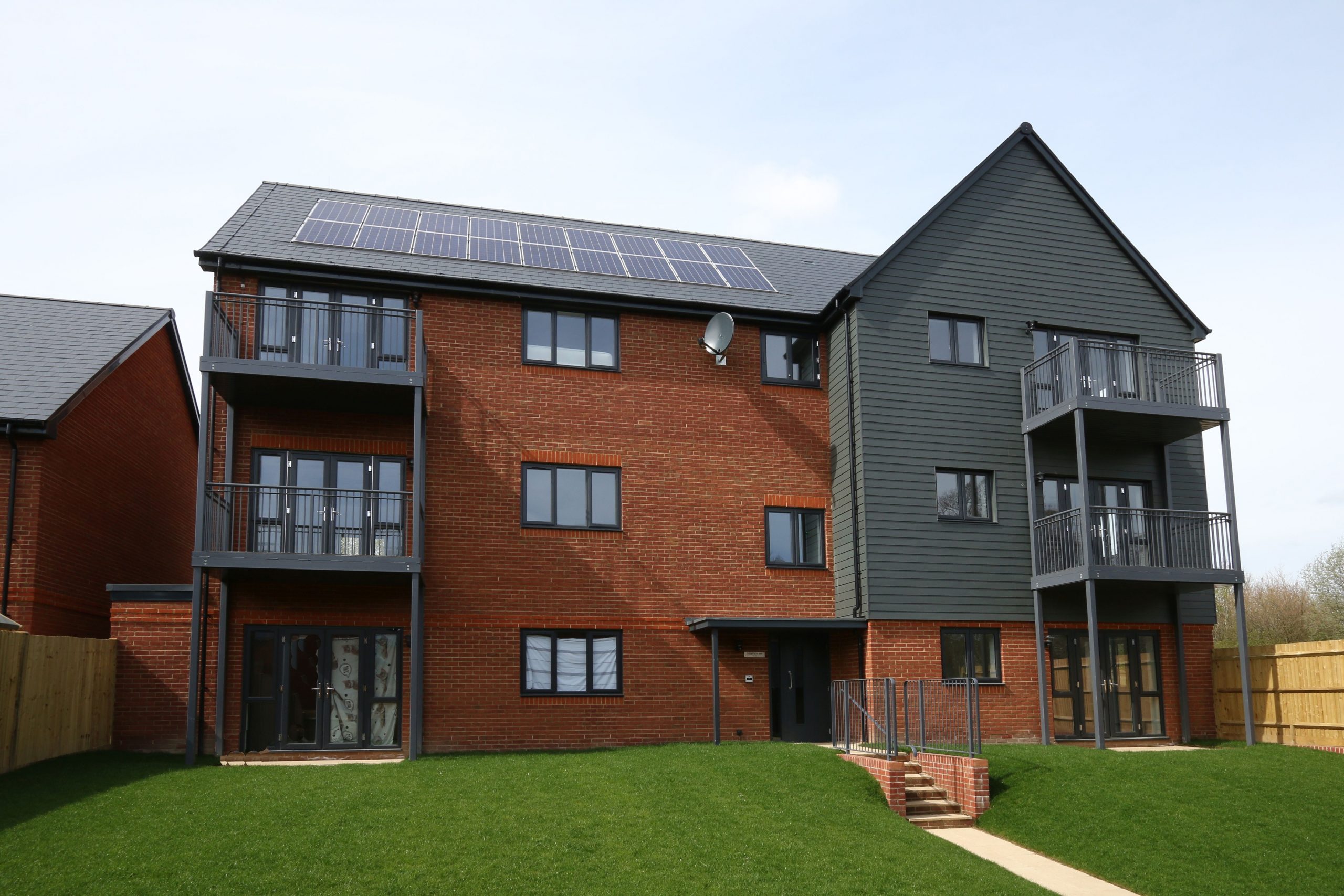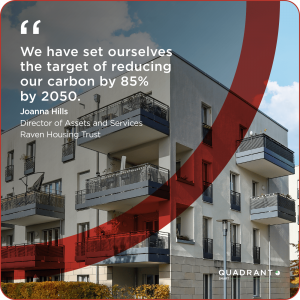£300m Funding To Support Affordable And Sustainable Housing

Housing provider Raven Housing Trust has secured a £300 million sustainable-linked deal. Housing Industry Leaders explores how the funding will help support its net zero commitments.
Working with Savills Financial Consultants and its existing lenders to agree on private placement and a loan facility package worth £300 million, Raven Housing Trust hopes the sustainable-linked funding will help Raven to deliver its plan to build more than 630 homes by 2026.
The private placement will help the commitments made by Raven in its Sustainable Finance Framework. These commitments include building more affordable and sustainable homes.
Consisting of a £130 million private placement provided by the Pension Insurance Corporation (PIC), £145m restricted and a new debt from Lloyds Bank, the funding includes a new £50 million revolving credit facility – and a further new £25 million revolving credit facility from Barclays Bank.
The Funding Will Support Raven’s Development Programme

Mark Baker, Financial Director at Raven Housing Trust
Housing Industry Leaders spoke to Mark Baker, Financial Director and Joanna Hills, Director of Assets and Services at Raven Housing Trust, about the funding and how it will help the housing provider reach its net zero commitments.
Mark began by explaining that the funding is long-term: “It’s over 30 or 40 years, so it gives us a lot of certainty about our future funding.
“In terms of this funding, we’ve backed that up with a Sustainable Finance Framework. It effectively gives a commitment for us on how we will spend this on new affordable homes, or we will use it on bringing our existing properties up to an excellent energy rating.”
Providing affordable homes is a focus for Raven, and Mark revealed that the funding will go a long way in supporting its development programme: “Our development programme over the next five years is around building mainly affordable and social homes, and shared ownership.”
We are probably going to spend something like £150 million on our development programme so you can see how this funding will do its part to support that.
Alongside this, Mark said that around £25 million would be spent on retrofitting works to help the housing association meet their EPC targets by 2030.
Raven’s New Build Homes Must Be Net Zero

Joanna Hills, Director of Assets and Services at Raven Housing Trust
Another focus for Raven is sustainability, as it set out its Sustainability Strategy last year. Joanna told Housing Industry Leaders that Raven has set itself the target of reducing its carbon emissions by 85 per cent by 2050 and said: “For all our new build homes, they must be net zero carbon wherever possible from now on. That means we are not creating a problem for the future.”
The last thing you want to be doing is to be building thins now that even though they meet current building standards, we will have to retrofit them later.
The Sustainable Finance Framework supports Raven’s Sustainability Strategy because some of the funding is allocated to that.
Support Is Being Given To People Who Are Struggling
In 2019, Raven did a Voice of The Customer Survey and the major takeaway from it was people wanted affordability. Now, during the cost of living crisis, affordability is even more important, and housing providers such as Raven need to focus on supporting people.

Joanna expressed how the funding will provide help for people who need it: “We know people are struggling; this funding is critical because it will mean that we can help to make sure that people can be comfortable and warm in their own homes and be able to afford to run their homes.
Also, a lot of our residents are very aware of climate issues, they care about the environment. The funding helps to show that we can support them in meeting things that they care about.
A vital aspect of this funding is that it is long-term; Joanna finished by explaining: “I think we’re ahead of the game; we have got our programme in place and fully cost across the whole period up to 2050.
“A lot of housing associations have set themselves the ambition, and they have perhaps set out the funding for the first period up to 2030.
“That is what is so great about this Finance Framework. It is a long-term vision and enables us to plot out exactly how we are going to get to where we need to get to.”

